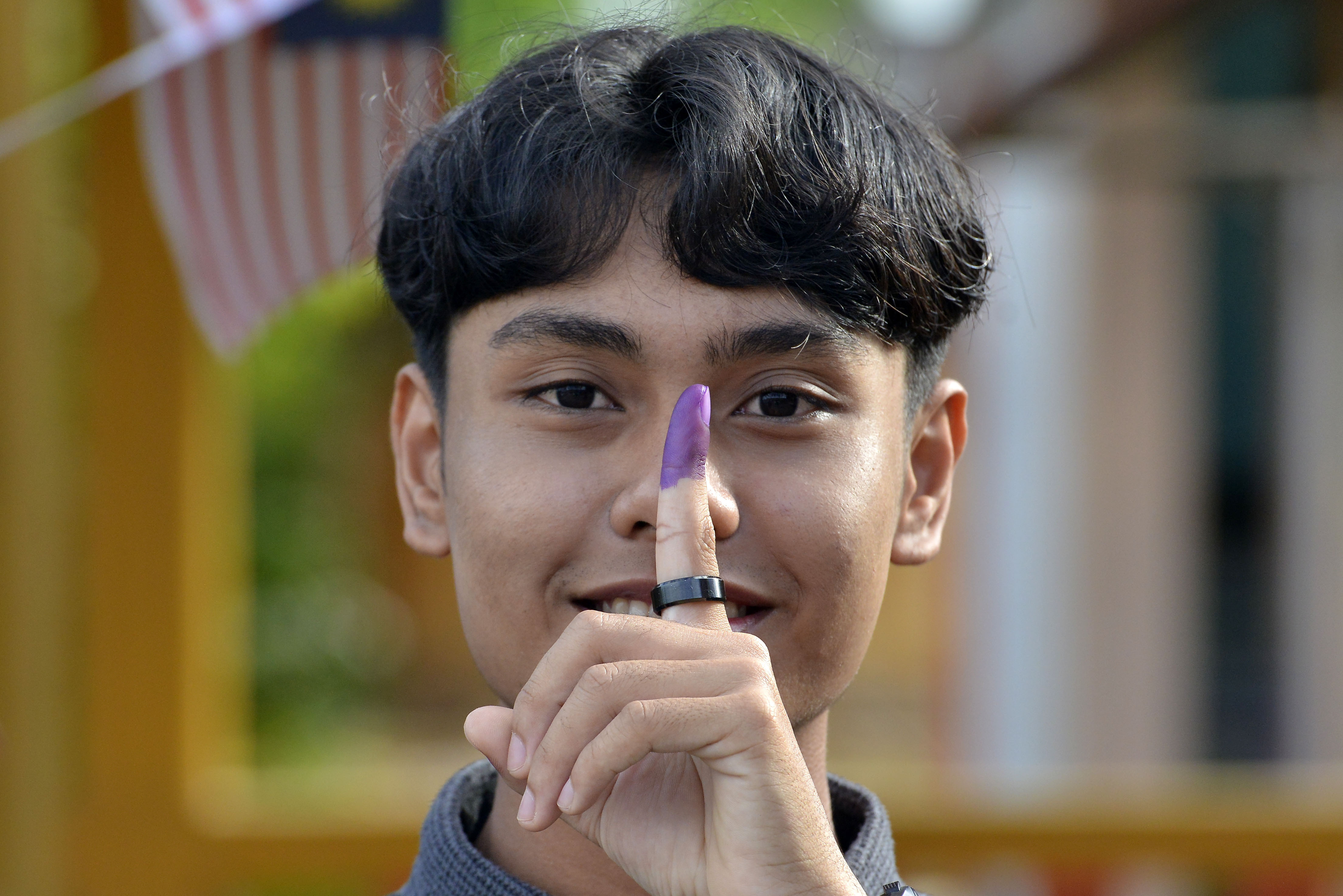
Malaysia remained without a government as King Al-Sultan Abdullah said he needed more time to choose the next prime minister, after the two main coalitions failed to win a simple majority in general elections at the weekend, which produced a hung parliament.
On Tuesday, opposition leader Anwar Ibrahim and former Prime Minister Muhyiddin Yassin had an audience with the king after neither had obtained majority support from the 222-member parliament.
Muhyiddin said he declined a request from the monarch to form a unity government with Anwar.
Anwar said that for now there was no question about forming a minority government. He said the king, in their meeting, spoke of wanting a strong government “that is more inclusive in terms of race, religion, or region” and one that can focus on the economy.
The monarch can appoint whoever he believes will command a majority. “Let me make a decision soon,” he told reporters outside the National Palace.
How did we get here?
Outgoing Prime Minister Ismail Sabri Yaakob called Saturday’s elections early amid pressure from his own party, the United Malays National Organisation (UMNO), saying it would help to restore stability after three prime ministers in almost as many years.
But for the first time in Malaysia’s history, the election produced a hung parliament with no single party or coalition winning the majority necessary to form a government.
The Pakatan Harapan (PH) coalition led by Anwar won 82 seats, meaning it needed to get the support of at least 30 more MPs to secure a 112-seat majority in parliament.
The rival Perikatan Nasional (PN) coalition led by Muhyiddin won 73 seats, with the Barisan Nasional (BN) coalition, which is dominated by UMNO, came in third with 30 seats. Other key parties in the negotiations are from the Borneo states of Sabah and Sarawak.
Gabungan Parti Sarawak (GPS) has 23 representatives in the new parliament, while Gabungan Parti Rakyat (GPR), which is based in Sabah, has six. Warisan, another Sabah-based party has three.

Old rivalries
The politicians involved in the discussions have allegiances and rivalries going back years, complicated by Malaysia’s multicultural society – the majority of people being ethnic Malay Muslims, but with substantial minorities of Chinese, Indian and Indigenous people who follow Buddhism, Christianity and Hinduism among other beliefs. Race and religion can be divisive issues.
Anwar started his political career as a student activist, founding the Muslim Youth Movement of Malaysia, known by its Malay acronym ABIM, in 1971.
He later joined UMNO where he rose rapidly through the ranks to become finance minister and deputy to then Prime Minister Mahathir Mohamad, but in September 1998 he was suddenly sacked. Mahathir accused Anwar of corruption and sodomy, a crime in Malaysia, and thousands took to the streets in protest.
Anwar’s imprisonment led to a clamour for reform and the founding of the multiracial Keadilan party, which means justice in Malay, a vital pillar of the PH coalition.
PH also includes the multiracial but mostly Chinese Democratic Action Party (DAP), which is unpopular with conservative Malays, and the reformist Islamist party Amanah.
It is also supported by MUDA, a youth-based party which has one seat in the new parliament.
The rise of the reform movement through the 2000s and beyond has driven a substantial realignment in Malaysian politics.
BN, a race-based coalition that also includes parties representing Malaysians of Chinese and Indian origin, once dominated the post-independence political landscape but lost power for the first time in 2018 – to PH – amid the multibillion-dollar scandal over the 1MDB financial scandal.
1MDB was set up as a state fund to drive new investment in Malaysia, but investigators say the money went elsewhere.
BN’s performance over the weekend was its worst ever. The main beneficiary of the coalition’s woes has been PN, a conservative Malay grouping.
The coalition includes Bersatu, founded by UMNO members angry about 1MDB, and expanded by former Keadilan members whose defections in February 2020 led to the collapse of the PH government.







